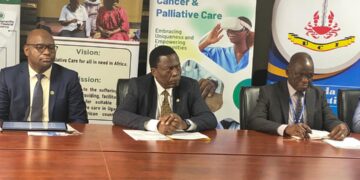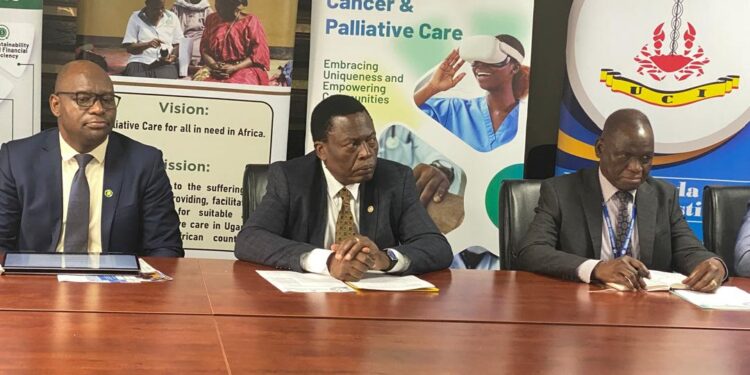Uganda will bring together health experts, researchers, policymakers, and advocates for the 5th Uganda Conference on Cancer and Palliative Care, set for 10–12 September 2025 at Speke Resort Munyonyo.
Organised by the Ministry of Health in partnership with the Uganda Cancer Institute (UCI) and the Palliative Care Association of Uganda (PCAU), the conference will run under the theme “Embracing Uniqueness and Empowering Communities.”
The focus will be on strengthening community-led solutions to improve access, equity, and holistic support for people living with cancer and other serious illnesses.
The three-day event will showcase research from East Africa and beyond, share strategies for standardising care in sub-Saharan Africa, promote collaborative training, and discuss sustainable financing for cancer and palliative care.
Key topics will include personalised and culturally inclusive care, community-driven models, innovation and AI in treatment, and care for underserved populations.
Dr Charles Olaro, Director General of Health Services, revealed that Uganda records about 34,000 new cancer cases annually, with more than 24,000 deaths.
“Only 20% of patients reach the Uganda Cancer Institute for treatment, meaning many die without receiving care,” he said.
He emphasised that 30% of cancers are preventable, 30% are curable, and the rest can be controlled through palliative care, which is a right for patients of all ages.
Dr Jackson Orem, Executive Director of UCI, noted that while Uganda has made progress in prevention, diagnosis, and treatment, socio-economic hardship remains a barrier to timely care.
“Some patients come to Mulago worried about what they will eat or where they will sleep, and tragically, some die on the streets of Kampala,” he said.
Government investment in cancer care includes expanding UCI to 365 beds, establishing a nuclear medicine facility, and acquiring three high-end radiotherapy machines.
Regional cancer centres in Gulu, Mbale, Arua, and Mbarara are also part of the expansion plan. Uganda remains the only country in the region offering free cancer treatment. Palliative care services are now available in 230 accredited facilities across 107 districts, but still reach only 10–11% of those in need.
PCAU Executive Director Mark Donald Mwesige hailed the collaboration with government as unique in Africa, bringing together 30 organisations and over 1,000 professionals to champion compassionate, accessible care.
Conference highlights will include a high-level health financing forum, a survivorship symposium, workshops on access to medicines, humanitarian responses, and emergency preparedness, alongside poster sessions and networking opportunities.
As Uganda gears up for the September conference, health leaders are calling for stronger prevention, early detection, innovation, policy reform, and community engagement to curb the country’s rising cancer burden.









